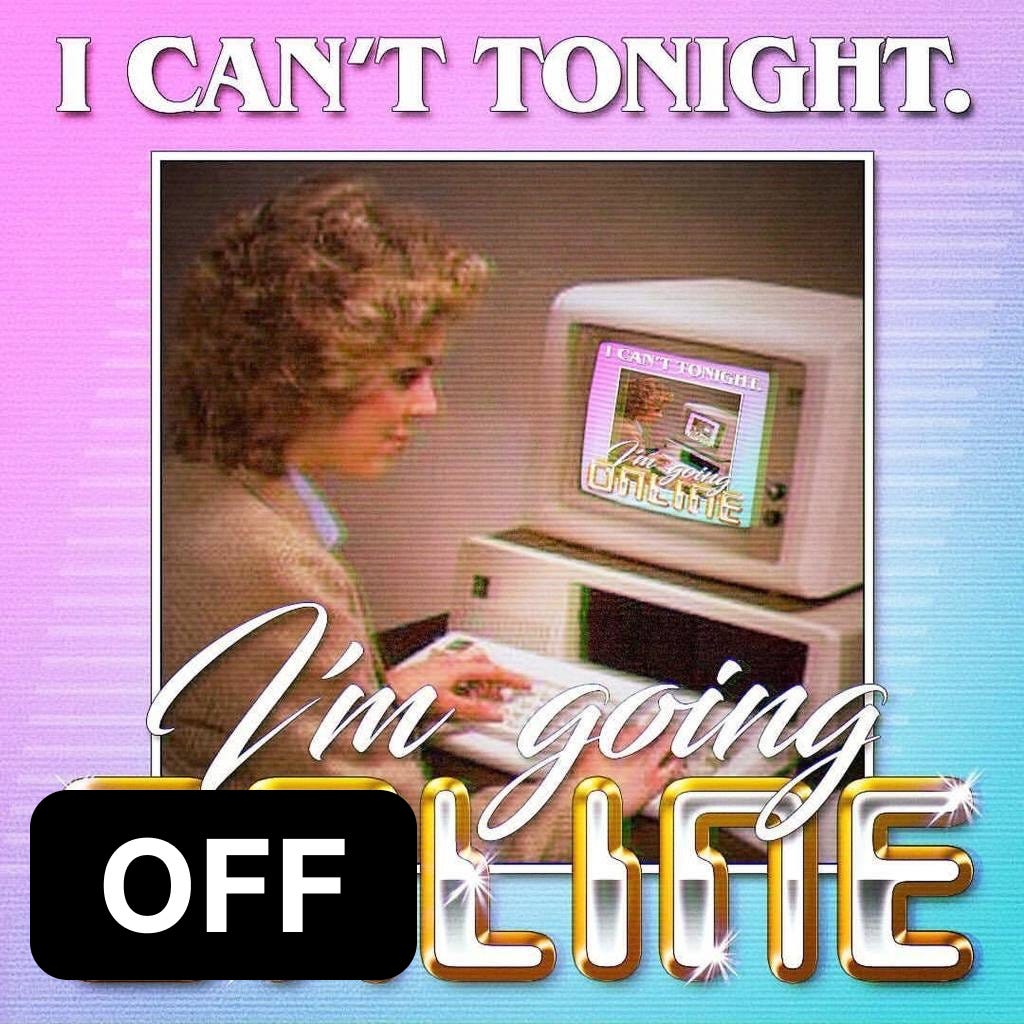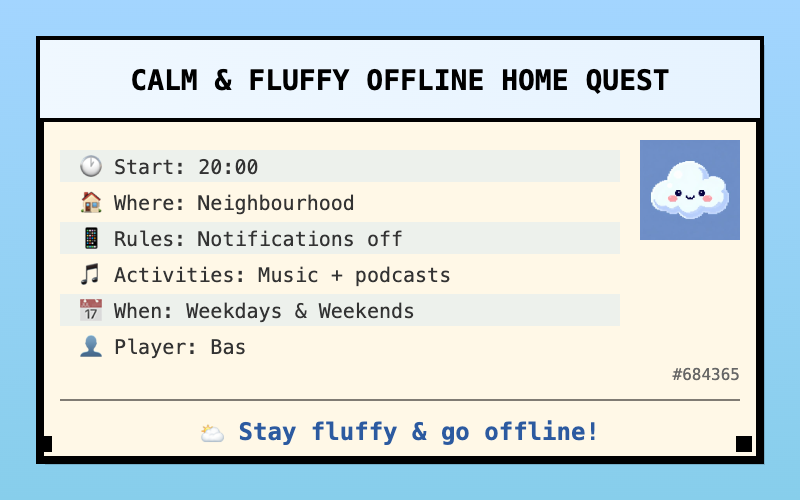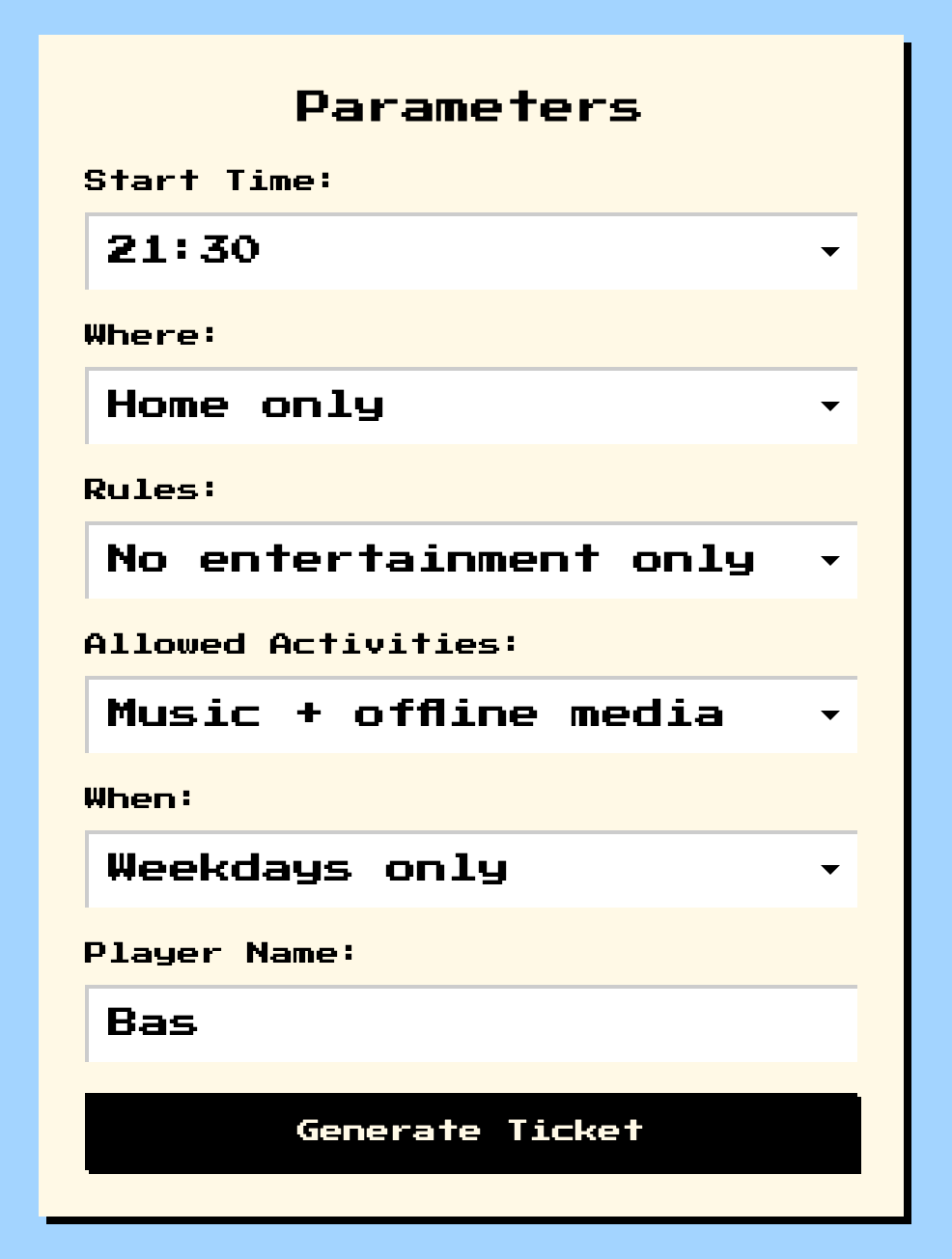Why I’m spending my October evenings offline
And how you can join me on this adventure for peace & health
This October, I’m going offline at home. And you can join the adventure.
In March, I left my phone at home for a month, which meant I was essentially offline whenever I went out (read about it here). Now I’m doing the inverse: every day at 8pm, I’m switching my home-life offline.
Keep reading to learn:
The benefits I expect from going offline at home 💎
The rules of the adventure 📜
How you can join the quest yourself 🛡️
Why I’m spending my October evenings offline
I’m online too much. Ever since I was a kid, I wanted to be on the magic computer machine in the corner of our home’s living room. It was like a portal to another world.
At some point, I figured out how to mute our dial-up modem, allowing me to have secret internet access for a month, until the phone bill betrayed me and my parents shut down my shenanigans.
My access was restricted, and I dreamt of a future where I could be online as much as I wanted.
By now, I’m well aware that being online as much as I am has more downsides than I could have imagined. And the feeling of being wired into something I can’t quite switch off.
So, for the month of October, I’ll be going offline every day at 8pm.
Expected benefits 💎
First and foremost, I expect more mental peace and clarity.
I distract myself by being online. I postpone tasks to the evening that I could do during the day. By cutting the noise at night, I expect sharper focus overall. I know this works from past experiences with exercising in the evenings and avoiding screens afterwards.
Better sleep.
Nas rapped one of the most iconic lines in music in the past decades when he said:
“I never sleep, cuz sleep is the cousin of death.”
And while I felt the same way as a 20-year-old myself, I now know that sleep is actually the cousin of health. Among many other things, good sleep helps to prevent heart disease. But it also supports your immune function, regulates hormones, improves metabolism, enhances cognition, reduces the risk of depression and anxiety, and the list goes on.
Staring at screens until late in the evening can’t help my circadian rhythm, so I want to adjust my screen time closer to when the sun actually sets.
Better eyesight?
Growing up, I was told that if I watched TV too much, my eyes would go square. Then, I would have joined a travelling circus and seen the world whilst learning acrobatics from my circus friends, but alas, my eyes are round like my phone’s selfie cam lens that stares back at me as I surf away into the night.
Staring into light for so many hours a day can’t be great for my eyesight, though. Or even just spending such a big part of the day using my eyes in such a limited way by looking at screens. I know eyes can be trained, so this is something I’m very curious about.
To be clear, I don’t expect to ‘repair’ anything, but I do wonder if better eye habits and reduced strain can improve my overall visual experience.
More time for more intentional activities.
I often hop on my phone or laptop when I want ‘something to do’. It may be a distraction from discomfort or a way to kill boredom. Meanwhile, I have a growing stack of books I want to read, I want to improve my cooking skills, there are a bunch of home improvement projects waiting for me, and I’ve been curious about communities of Buddhist practitioners in my neighbourhood, but I've never made time to go check them out.
Am I going to do all of that in one month? No. But I’ll definitely do more of it than if I had the option to go online every evening.
I know about myself that I’m not great at controlling my reaction to impulses, so the best thing I can do for myself is to manage impulses by changing my environment.
The rules of the adventure 📜
In October, I’m going offline every day at 8pm. I’ll do this on weekdays and weekends.
Where: at home, but if I go out in my neighbourhood for a walk or to buy some groceries, I’ll stay offline. If I’m out in the city, I’ll stay online, but only to coordinate with friends, exchange contacts, and so on.
I’ll turn WiFi & mobile internet off every evening. I want to stay reachable for a friend who’s struggling and I don’t have a landline, otherwise I’d go airplane mode.
No video games or MUBI offline mode. I don’t want to spend my time looking at screens, so even if games or movies can be watched offline, I’ll abstain.
Music & podcasts are the only things I’ll allow myself. They’ll have to be saved offline, though.
Over the course of the month, I’ll keep track of how I’m feeling. I want to see what shifts. If I catch myself somehow finding loopholes that distance me from the expected benefits, then I’ll ramp up the intensity of the adventure for myself.
If 8pm turns out to be easy, then I’ll shift to 7.30pm.
I’m also considering picking up a new habit, as this is a great opportunity. Morning meditations, that I’ve always struggled with? More consistent journaling? Let’s see.
Join the quest 🛡️
The reason I share my journey is to help others become Calm & Fluffy.
So I have a little surprise for you.
I invite you to join the adventure.
I’ve built a small website, so you can generate yourself a ticket to join this quest.
The ticket will remind you of the rules you set for yourself.
If you want an easier adventure, you can just say that for the month of October, you won’t play games or stream from Netflix at home after 9.30pm, but only on weekdays.
Do let me know if you have any questions or requests for options. I’m going to create a group chat here on Substack, so we can check in with each other, and share our tickets. (edit: link here)
Click the button below to visit the website.
If you have friends who may be interested in joining the challenge, you can share your ticket with them and invite them to participate. Or let them know by sharing this post.
Good luck with defining your quest, and I’m looking forward to embarking on this adventure with you!






Love this challenge, Bas! Since I’m doing a no-buy in 2025, I really like the idea of pairing it with some offline time (they’re SO connected).